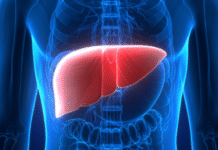New Delhi– Regular consumption of sugary drinks like soda, fruit juice, and energy or sports beverages may significantly increase the risk of developing type 2 diabetes (T2D), according to a new study led by researchers at Brigham Young University (BYU) in the U.S.
The study, published in the journal Advances in Nutrition, analyzed data from over half a million individuals across multiple continents. Researchers found a clear link between higher intake of sugar-sweetened beverages and increased risk of diabetes, with no safe minimum threshold.
According to the findings, each additional 350 ml serving of sugary drinks — including soft drinks, energy drinks, and sports drinks — per day raised the risk of developing type 2 diabetes by 25 percent. For fruit juices, including 100% juice, nectars, and juice drinks, an added 250 ml serving per day was associated with a 5 percent increase in risk.
“This is the first study to clearly establish dose-response relationships between different sugar sources and the risk of type 2 diabetes,” said lead author Karen Della Corte, a nutritional science professor at BYU. “It highlights why drinking sugar — whether from soda or juice — poses a greater health risk than consuming it in solid foods.”
The research emphasizes that not all dietary sugars are equal in their metabolic effects. Sugars consumed as part of nutrient-dense foods — such as whole fruits, dairy products, or whole grains — do not overwhelm the liver, thanks to the presence of fiber, fats, proteins, and other beneficial nutrients that slow glucose absorption.
In contrast, sugars found in beverages are often “isolated” — meaning they’re consumed without accompanying nutrients — leading to rapid spikes in blood glucose levels and a greater metabolic burden on the liver. Over time, this can promote fat accumulation in the liver and increase insulin resistance, key factors in the development of T2D.
“These findings support the need for stricter dietary guidelines concerning liquid sugars,” Della Corte said. “Sugary drinks, even fruit juices, are strongly associated with poor metabolic health and increased diabetes risk.”
The study reinforces growing public health concerns about the role of sugary beverages in the global rise of type 2 diabetes and metabolic disorders. (Source: IANS)













